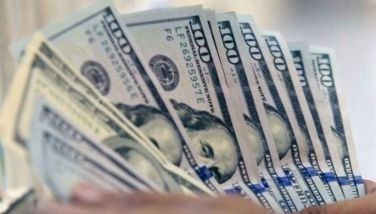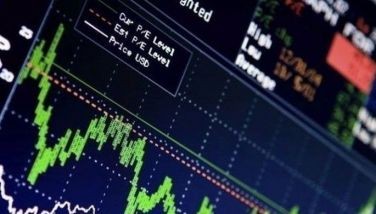AI: Boon or bane?

There is an AI photo editing app taking social media by storm.
Using the Epik app, users can generate their own yearbook pictures by submitting eight to 12 selfies for the AI to transform. The generator is capable of concocting up to 60 different personas ranging from preppy cheerleaders to the football team captain. Epik is free to download, but the yearbook AI function is a paid feature, according to creativebloq.com.
But of course Epik is not the only AI portrait generator, photo editor app that can be downloaded via Google Play or App Store, though most would require a paid subscription.
Data security and privacy concerns however have been raised amid the rising popularity of these apps.
AI, blockchain, cryptocurrencies. These are just but a few of phenomenal technological breakthroughs that can improve our lives but at the same time destroy it if we do not understand them and do not manage the risks.
We have asked Commissioner Kelvin Lee of the Securities and Exchange Commission (SEC) for his thoughts on these. Lee’s exceptional contribution in growing financial technology in the country has garnered recognition from the international community.
Just recently, he noted that technology often outpaces regulation, creating a need for the SEC to adapt and update its regulations regularly to effectively cover emerging technologies such as AI, blockchain, chatbots and the like.
In an interview with this writer, Lee admitted that many issues surround AI.
He said that tech giant Elon Musk has warned that AI could threaten civilization while during a US Senate forum on AI where Senate Majority Leader Chuck Schumer asked the tech executives present if government needed to regulate AI, all of the executives present raised their hands.
But even then, there are those who are quite pro AI. Bill Gates, for instance, has argued that AI could help address world hunger, Lee noted.
According to Lee, he personally believes that we shouldn’t look at AI itself negatively. “At the end of the day, AI is a tool. And we should look and treat it as such. A tool can be used positively or negatively, depending on the person operating that particular tool. It can help someone with research, finance (such as in robo-advisory services for investments), marketing (AI models can show the appropriate ads to the right customers), cybersecurity (such as in the creation of two factor authentication and auto-generation of passwords), customer support (such as through the use of chatbots, etc). and many other methods,” he said.
He also warned that if we choose not to allow the use of a particular tool like AI, we run the risk of our country being left behind by other more technologically adaptive countries willing to use AI.
But this, Lee emphasized, does not mean however that we should allow these tools to run around unchecked. “There is of course a need to ensure that they remain safe to use and will not adversely affect our country and our citizens. We must ensure that our people are protected. Thus, I personally believe that we need to regulate AI but not too strictly (at least not at this stage) as we do not want to stifle innovation. In such a fast-moving field such as technology, we need to ensure there are safeguards in place that, hopefully, will not be a hindrance to advances or innovation,” he noted.
At this stage, he said it might be too early to have specific regulations for AI, especially since many of the innovations associated with it are still in the process of evolving.
Lee said that offhand, he would prefer that AI, or those that use AI, be regulated by having them registered with the government in the Philippines. “For me, at the end of the day I want to ensure that someone is accountable should something wrong happen due to that AI or that tool being incorrectly or inappropriately used. Thus, my personal opinion is that those companies or entities that use AI or develop AI in the Philippines should at least register with government through the applicable agency. One imperfect analogy we can use would be drivers’ licenses. One cannot drive a car unless he has a driver’s license. Brought into our context, AI that is being deployed here should have the appropriate license as well in the future,” he added.
Lee disclosed that there is already a bill filed in Congress, House Bill 7396, which proposes the creation of the Artificial Intelligence Development Authority (AIDA) that will direct how businesses create and develop artificial intelligence products to the country and aims to maximize benefits and mitigate AI risks to Filipino citizens.
On the part of the SEC, Lee said although they are actively monitoring AI tools being used in the financial sector, the commission has yet to decide whether it will proceed with crafting bespoke regulations targeting AI tools.
“There are some robo-advisory services being proposed to be deployed for securities trading though, and we have chosen to consider allowing them subject to the appropriate registration with the SEC. This is to ensure accountability. This will be covered in upcoming regulations for investment advisers. As regulators, it is important that we always seek this balance of adopting technology at a speed or in a manner that is cognizant of the associated or related risks of the activities,” Lee emphasized.
For comments, e-mail at [email protected]
- Latest
- Trending

























